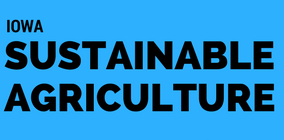This blog written by four Iowa State University graduates originally appeared on Food First’s website.
Public Science Under Attack: Iowa State University’s Leopold Center for Sustainable Agriculture
Photo by David Cornwell, CC / BY
All ethics so far evolved rest upon a single premise: that the individual is a member of a community of interdependent parts…the land ethic simply enlarges the boundaries of the community to include soils, waters, plants, and animals or collectively: the land.
– Aldo Leopold
Decades of agricultural consolidation and industrialization have resulted in the flight of people, capital, and topsoil from rural communities – a fact that Iowans know all too well. But Iowans are fighting back against an agricultural system that fails to address the needs of farmers, workers, and their communities.
Iowa farmers are on the frontlines against increasing industrialization and consolidation of our agricultural system. As Midwest agriculture has industrialized, water quality has diminished and topsoil has disappeared. Meanwhile, many farmers are just scraping by, while profits increasingly consolidate in the hands of input companies instead of rural communities. There is a desperate need for more research on more ecological, diverse and community-based approaches to the food system.
The Leopold Center for Sustainable Agriculture at Iowa State University does just that. For the last 30 years, it has partnered with farmers to study cover crops, prairie strips, diverse crop rotations, and other approaches that over time can lead to a brighter future for the state. It has worked to build a more ecological, community-based agricultural system in the heart of the Corn Belt — an admirable task in a state where water is increasingly polluted by agricultural run-off, soil is literally washing away, and rural communities are in decline.
And yet, news over the last week reveals that state lawmakers are seeking to defund and de-authorize the Leopold Center, which was founded in 1987 as part of landmark environmental legislation.
The Leopold Center is unique as a publicly-funded research institution not only for its vision; it is primarily funded through a legislative mandate that requires a percentage of state sales tax on fertilizer be devoted to researching alternatives that minimize negative environmental and social impacts associated with industrial agricultural production. Despite the obvious need of the Center’s research, state legislators have recently put the Center’s funding on the chopping block and proposed to move its funds to the Iowa State University Nutrient Management Center.
So why wouldn’t the legislature in Iowa want to keep the Center? It seems that research that reduces reliance on external inputs doesn’t jive with the entrenched financial interests in Iowa, where Big Ag is king. These cuts are proposed in a time when state land grant universities increasingly partner with private agribusiness to support research that largely reinforces the industrial agriculture status quo. Despite this trend, over the past thirty years, the Leopold Center has supported over 600 research projects and efforts that address water quality, soil health, conservation best management practices, and local food system development.
Losing the Center would mean substantial reductions in funding for sustainable agricultural research (estimates are in the millions based on both direct and leveraged funds), including support and engagement with nearly 13,000 farmers and agricultural professionals.
The Center has also funded over 250 ISU-affiliated faculty, students, and staff to conduct research that expands our understanding of agricultural transformation. As Iowa State Univeristy alumni who benefitted from the mentorship and research opportunities the Center provides, we are left wondering…What do these cuts mean for the next generation of scientists, farmers, and community leaders in Iowa and beyond? What information will farmers have access to? Will our classmates be able to return to their communities to farm? What will our rural communities look like?
Legislators who’ve put the Leopold Center on the chopping block argue that they have “completed their mission” in studying sustainable agriculture. This suggests that Iowa has successfully addressed agricultural pollution, and that our agricultural communities and their urban counterparts are doing well. These “alternative facts” disregard current environmental and economic realities, while revealing the ugly political interference often accompanying science that challenges powerful financial interests.
After the launch of a petition in support of the Leopold Center, over 400 people in 24 hours shared their thoughts on the importance of institutions such as the Leopold Center. Many stressed the importance of the support for transformation the Leopold Center provides, such as this anecdote from one petition signee:
My family has farmed in Iowa since the 1800’s. We consider ourselves scientific farmers and we use Leopold Center funded research to make our farms both more environmentally and financially sustainable.
The Leopold Center is one of few remaining publicly-funded entities dedicated to partnering with farmers and researchers in experimenting with and adopting sustainable agricultural practices. The proposed elimination of the Leopold Center would end a transparent, science-based research initiative that helps farmers in their creation of real alternatives to industrial corporate agriculture. This struggle for public science in Iowa (and across much of the Corn Belt) is a fight illustrative of the larger battle for public science and the commons as a whole.
For updated information on efforts to protect the Leopold Center for Sustainable Agriculture, visit www.iowasustainableag.com.





